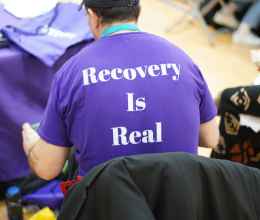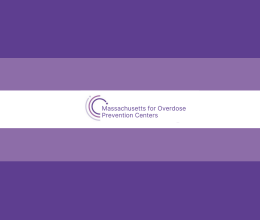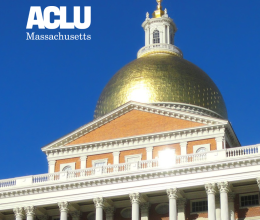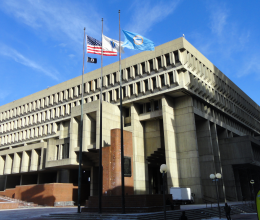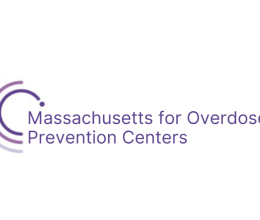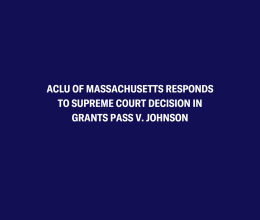
UPDATE: On November 26, a federal court judge issued a preliminary injunction requiring the Massachusetts sheriff to provide Pesce with continued access to his methadone during his incarceration.
The ACLU of Massachusetts, together with Goodwin Procter, is challenging the policy and practice of denying medication-assisted treatment (MAT) to incarcerated people who are diagnosed with opioid use disorder.
The lawsuit was filed on behalf of Geoffrey Pesce, who suffers from opioid use disorder but has been in recovery for two years with the help of doctor-prescribed medication. Pesce struggled with addiction for nearly six years, experiencing unemployment, homelessness, and estrangement from his family and son. After his doctor prescribed medication-assisted treatment, he made a dramatic recovery.
One day in July 2017, his family members were unexpectedly unavailable to drive him to the methadone treatment facility. Feeling as though he had no other option, he drove himself, though his license was suspended. He now faces imprisonment at the Middleton House of Correction in Essex County, where his medication will not be made available to him.
People with opioid use disorder who are denied their medication suffer painful withdrawal. They also face an increased risk of relapse, overdose, and death. Despite medical consensus that MAT is the standard care for opioid use disorder, the Middleton House of Correction refuses to provide MAT to people with opioid use disorder, including those who arrive with a prescription for such medication and are already in sustained recovery as a result of it.
The ACLU and Goodwin Procter are asking the federal court to require Essex County correctional authorities to provide Pesce’s prescribed medication for continued treatment of his opioid use disorder while incarcerated or to otherwise make the medication available to him by transporting him to the nearby methadone treatment facility to receive his daily dosage.
ACLU affiliates in Washington and Maine have filed similar lawsuits.
Media
- Marshall Project: When Going to Jail Means Giving Up The Meds That Saved Your Life
- Eagle Tribune: Our view: Jails should allow addiction treatments
- Salem News: Sheriff says he will allow inmate’s methadone treatment
- Boston Globe: Court orders Essex County to provide methadone to inmate
- Associated Press: Judge: Jail must provide man with opioid addiction meds
- MassLive: Judge’s injunction would allow Middleton Jail inmate to receive methadone treatment
- WBUR: Judge rules Essex County jail must give man methadone for opioid addiction
- Filter: Federal Judge Issues Groundbreaking Order to a Jail to Allow Methadone Access
- Boston Globe: Court orders Essex County to provide methadone to inmate
- Associated Press: Judge: Jail must provide man with opioid addiction meds
- Salem News: Judge's injunction would allow Middleton Jail inmate to receive methadone treatment
- WBUR: Judge Rules Essex County Jail Must Give Man Methadone For Opioid Addiction
- ACLU of Massachusetts: People in prison are being denied adequate medical care for addiction
- Boston Globe: ACLU challenges jail’s policy of denying methadone to inmates
- WBUR: Essex County Sheriff Sued For Denying Inmates Medication-Assisted Opioid Treatment
- Gloucester Daily Times: ACLU suing sheriff over opioid treatment; Ipswich man seeks to stay on methadone in jail
- Worcester Telegram: Essex inmates sue over lack of access to opioid addiction medication
- Courthouse News Service: ACLU Sues Over Methadone Access for Inmates
